Start-up power for the heating transition
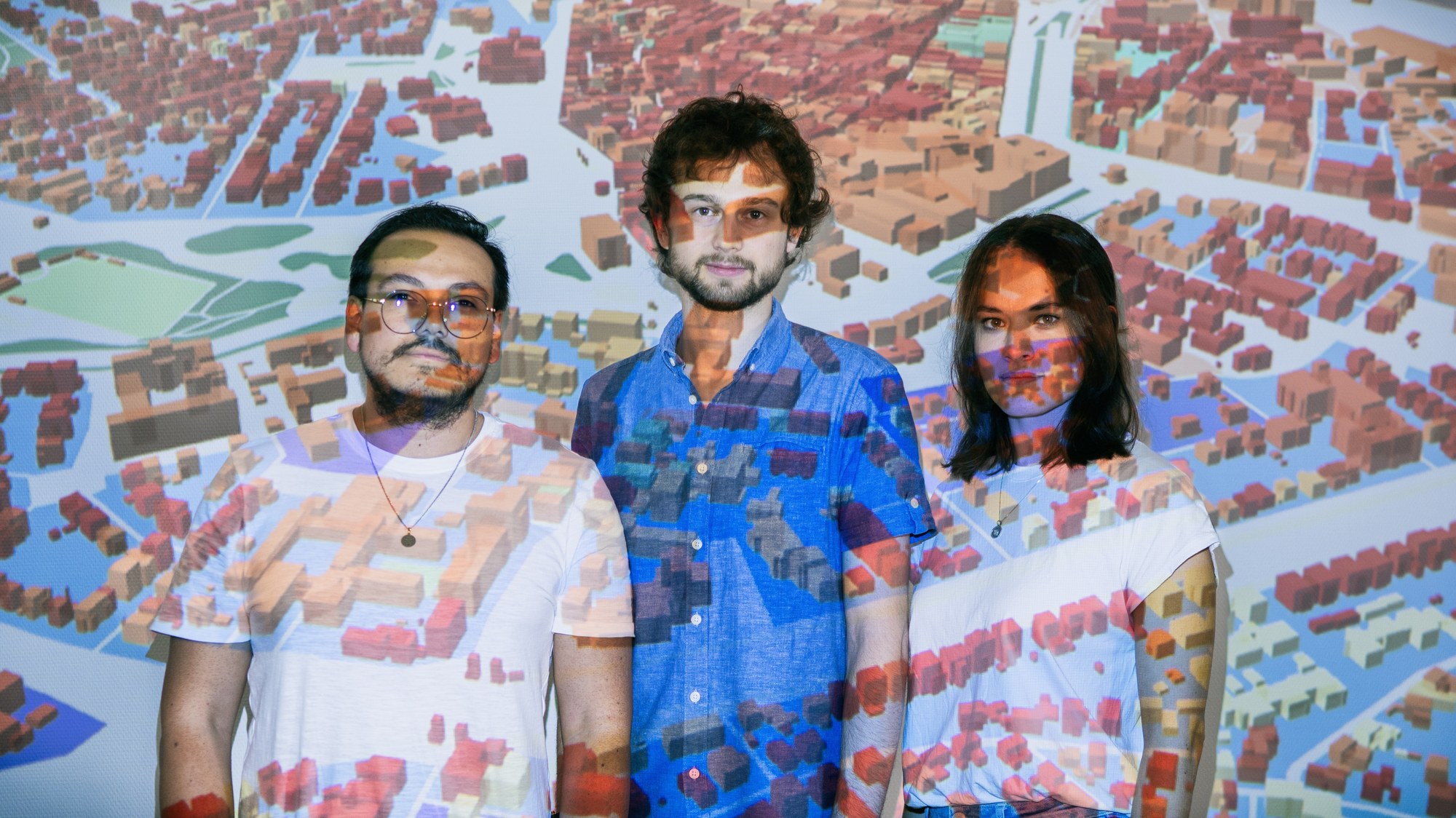
Philip Groesdonk, Luis Blanco and Larissa Singer share a mission: with their start-up heatbrAIn, they want to drive the transition to renewable-based heating. To achieve this, the trio has launched a unique service that employs artificial intelligence (AI) to generate high-precision datasets. The data enables municipal heating plans to be drawn up more effectively and heating networks created more rapidly.
Whether for heating, hot water or industrial processes, more than half of the energy consumed in Germany is used to generate heat. As a result, the heating sector accounts for nearly 40 percent of the country's carbon dioxide emissions, primarily due to heat generation from fossil fuels such as gas and oil. To achieve climate neutrality by 2045, Germany must implement a fundamental transformation in the heating sector. The term 'heating transition' refers to the process of shifting the heating supply to renewable sources, making it futureproof, reliable and affordable. The transition will also reduce Germany's reliance on increasingly expensive energy imports.
Success through precise data and AI support
"For the heating transition to succeed, local councils, planning offices and heating network operators need comprehensive and precise data. Simply put, they need to know who needs how much heat, when and where. This is exactly where heatbrAIn comes in," the team explain. Philip Groesdonk and Luis Blanco met at the DLR Institute of Solar Research in Jülich, where they are both working on their doctorates. Larissa Singer joined the team in November 2023. Straight out of university and with a Master's degree in Business Administration, she is primarily responsible for administration, marketing, finance and sales in the start-up company. With the support of the Director of the DLR Institute of Solar Research, Bernhard Hoffschmidt – who has already founded several companies himself and thus put research into practice – and their group leader Jacob Estevam Schmiedt, the trio founded the DLR spin-off heatbrAIn in spring 2024. A combination of the terms heat and brain, with a capital A and I, the name cleverly evokes the role of artificial intelligence in collecting and analysing data.
Municipal heating planning – a nationwide challenge for Germany
At the beginning of 2024, the Act on Heat Planning and the Decarbonisation of the Heating Networks came into force, establishing the legal foundation for comprehensive heating planning across Germany. In most federal states, this task falls to municipalities, which are responsible for determining by which means heat can be supplied where and how to utilise renewable energy sources and existing waste heat. Some municipalities, particularly larger cities, already have a heating plan in place, while many others have initiated similar projects.
Annual data is often sufficient for municipal heating planning. The main question is whether the heat supply can be transitioned at all. But as Groesdonk explains, "If the specific aim is to establish or expand heating networks, then much more precise data is needed. You need to closely examine demand throughout the year, especially the differences between summer and cooler seasons, and you also need information on local consumers and their heating requirements as needs vary between residential, commercial and industrial areas. The age and energy efficiency of buildings are also important factors." Up until now, gathering and processing all this data from various sources has been a highly time-consuming process.
Our main target group is local authorities, planning offices and operators of heating networks, such as public utility companies. All customers have to do is tell us the area for which they need data, and we can usually deliver the corresponding datasets within a few days.
Fast and automated access to scientifically valid datasets
For Groesdonk and Blanco, this challenge served as the impetus for founding their company. During their research and doctoral theses at DLR in the field of energy technology, they jointly developed specialised software. This software automatically brings together all existing open data sources, such as three-dimensional building models from state land registries. They also programmed and trained an AI model to supplement missing data, allowing heatbrAIn to calculate the heating demand for a specific area at an hourly rate. A significant amount of knowledge, time and effort has gone into developing this software, which is at the heart of the DLR spin-off. The two DLR researchers are continually optimising it and are currently integrating insights from pilot projects.
"Our software covers the entire process autonomously – from compiling the data to outputting the results," explains Blanco. "For instance, the AI model determines the age of buildings, as this information is only available in a grid format, with each value comprising multiple buildings. Our AI model breaks down this summary, enabling us to make valid assumptions about the age and therefore the energy efficiency of individual buildings. The software mainly uses official geodata and supplements it with data from the OpenStreetMap service if information is missing. It is important to note that rather than calculating the exact heat consumption, our software determines the heat demand based on certain assumptions." The experience gained from projects with test customers has shown that the actual consumption data correlates well with the demand level predicted by heatbrAIn.
Often, implementing the transition to sustainable heating involves measures that directly affect local people and businesses. If the decisions made are based on sound data, it also improves their level of acceptance.
More than just numbers
"Our main target group is local authorities, planning offices and operators of heating networks, such as public utility companies," explains Singer. "All customers have to do is tell us the area for which they need data, and we can usually deliver the corresponding datasets within a few days. In addition to the datasets, customers also receive documentation detailing the data sources for the modelling, as well as the assumptions and calculations underlying the results," continues Singer. By providing this level of detail, the start-up aims to promote transparency and understanding. "Often, implementing the transition to sustainable heating involves measures that directly affect local people and businesses. If the decisions made are based on sound data, it also improves their level of acceptance," Philip Groesdonk affirms. The start-up's goal is not merely to provide a set of data but to offer ongoing support to ist customers, meaning that further data can be incorporated at short notice and throughout the process.
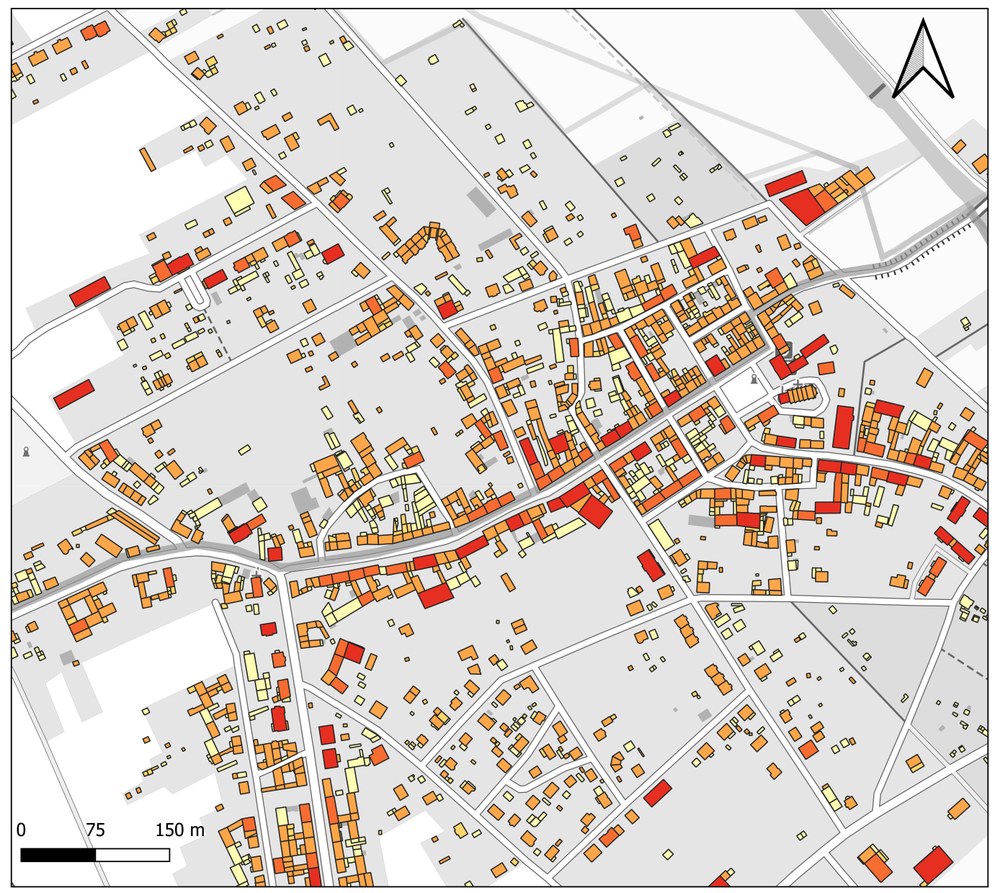
DLR/LVermGeo-ST/basemap.de
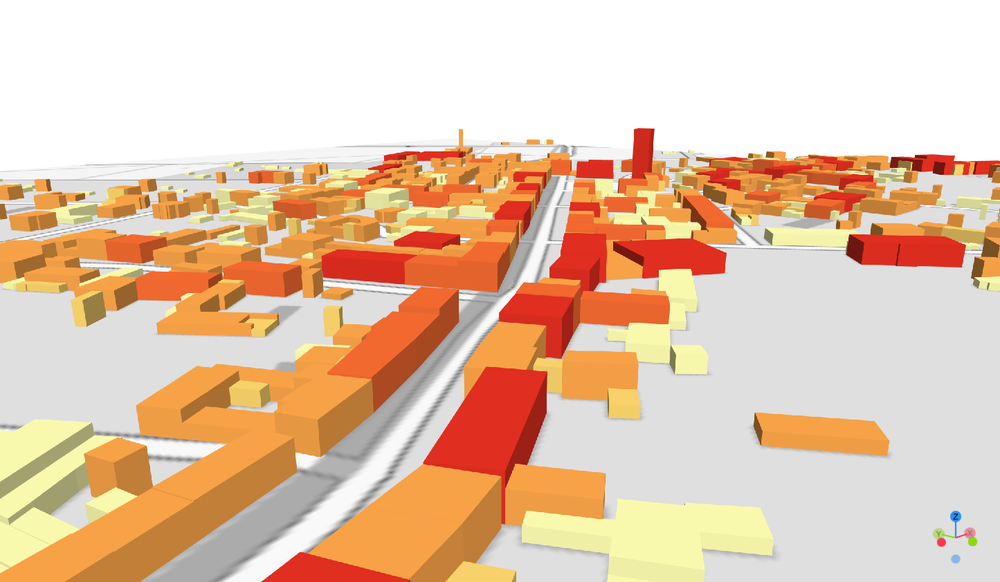
DLR/LVermGeo-ST/basemap.de
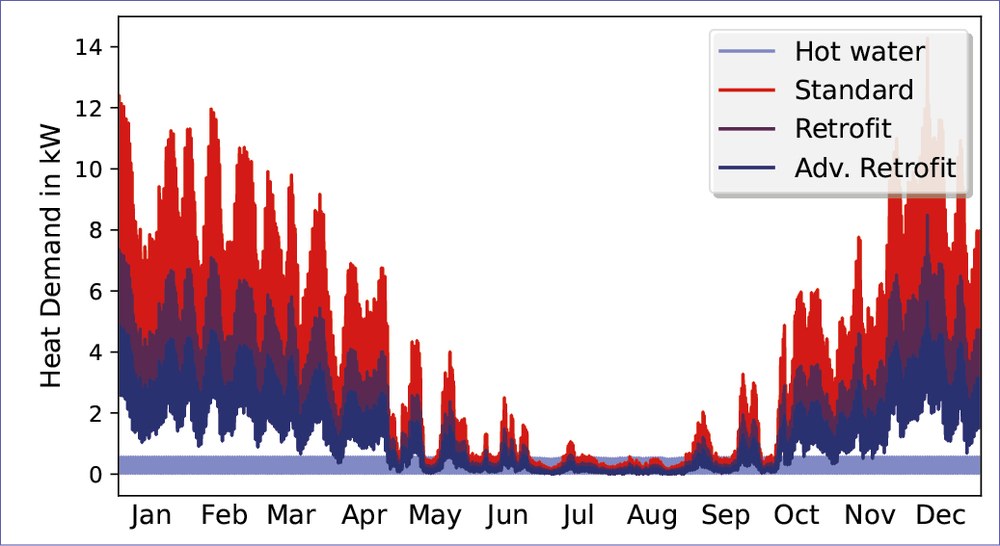
Comprehensive support for a successful start
heatbrAIn was officially registered as a limited company (GmbH) in March 2024 and is now approaching a further major milestone. From this autumn, the spin-off will need to be financially independent, sustaining itself through its first customer orders. The customer acquisition process is already in full swing, and the team has also moved away from the DLR site in Jülich to a new home in the nearby Brainergy Park, which hosts companies primarily from the renewable energy sector.
During its start-up phase, heatbrAIn was mainly financed by the Helmholtz Enterprise Spin-Off Programme, which supports entrepreneurial and spin-off activities by scientists within the Helmholtz Association of German Research Centres, of which DLR is a member. In addition, DLR's Innovation and Transfer division assisted the fledgling enterprise in conducting market analyses, selecting a business model and drawing up a business plan. Networking and exchanging ideas with other spin-offs and successful start-up companies also proved invaluable. "Especially in the early stages of setting up the company, this support gave us security from both a financial and organisational viewpoint," Singer reflects. "However, you do need to have a certain appetite for risk when setting up a company."
First successes as motivation for the future
heatbrAIn has already been recognised for its achievements, receiving the 32,000-euro Gründungspreis+ (a start-up prize) from the German Federal Ministry for Economic Affairs and Climate Action. The DLR spin-off was one of six winners out of more than 200 participants. Successes like this are crucial for bringing the team closer together and providing motivation. "A lot of what we do is completely new to us. We are familiarising ourselves with a wide range of different areas, which takes time and can sometimes lead to stressful days and nights," summarises Groesdonk. Despite the challenges, they value the enormous freedom and independence that this venture brings and are excited about the steep learning curves. "As a young professional, there was a lot that I would not have dared to do a few months ago," recalls Singer, who joined heatbrAIn directly after graduating. "It is also great to see that we can take something from research, set up a company, and put it into practice by supporting concrete projects for the heating transition," Groesdonk, Blanco and Singer agree.
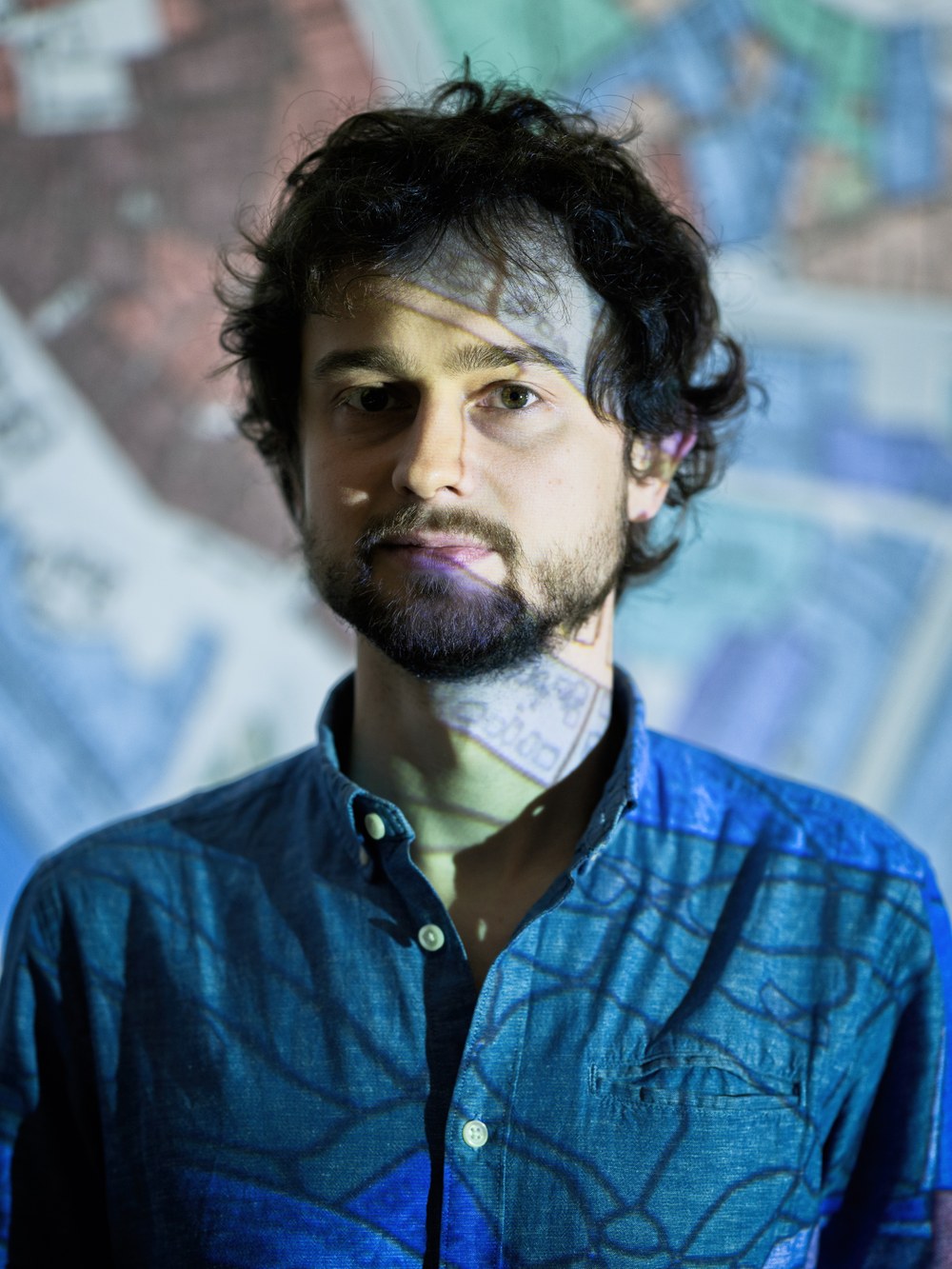
Age: 32
Hometown: Cologne
Doctoral thesis at DLR: Energy analysis of existing buildings using remote sensing data
As a child wanted to be: an archaeologist
According to colleagues, is particularly good at: approaching things in a structured way and absorbing and processing a lot of information
First thing that comes to mind upon hearing the word 'heat': comfort
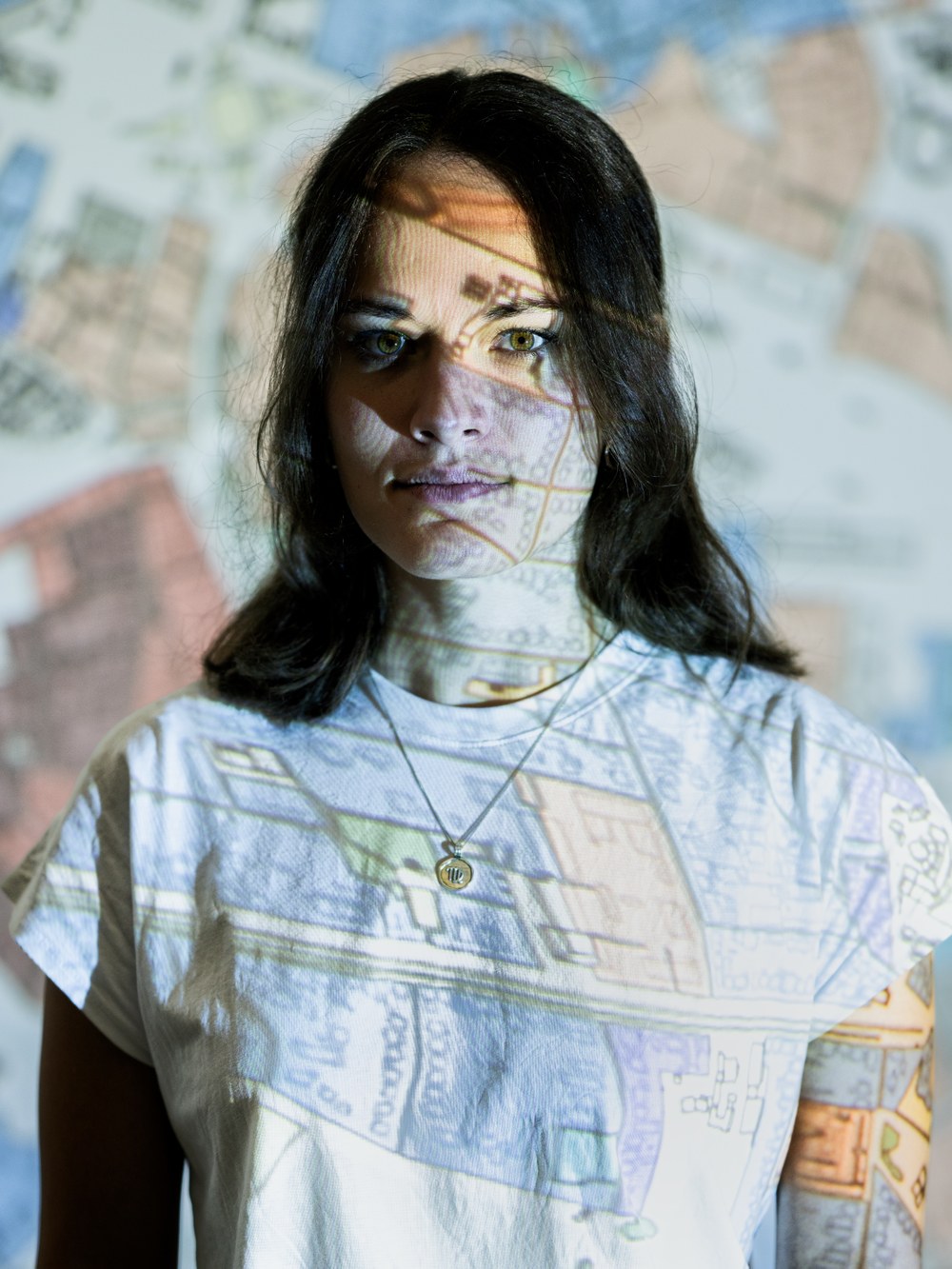
Age: 27
Hometown: Mönchengladbach
As a child wanted to be: a police officer or whale researcher
According to colleagues, is particularly good at: keeping in mind the bigger picture and has attention to detail
First thing that comes to mind upon hearing the word 'heat': summer
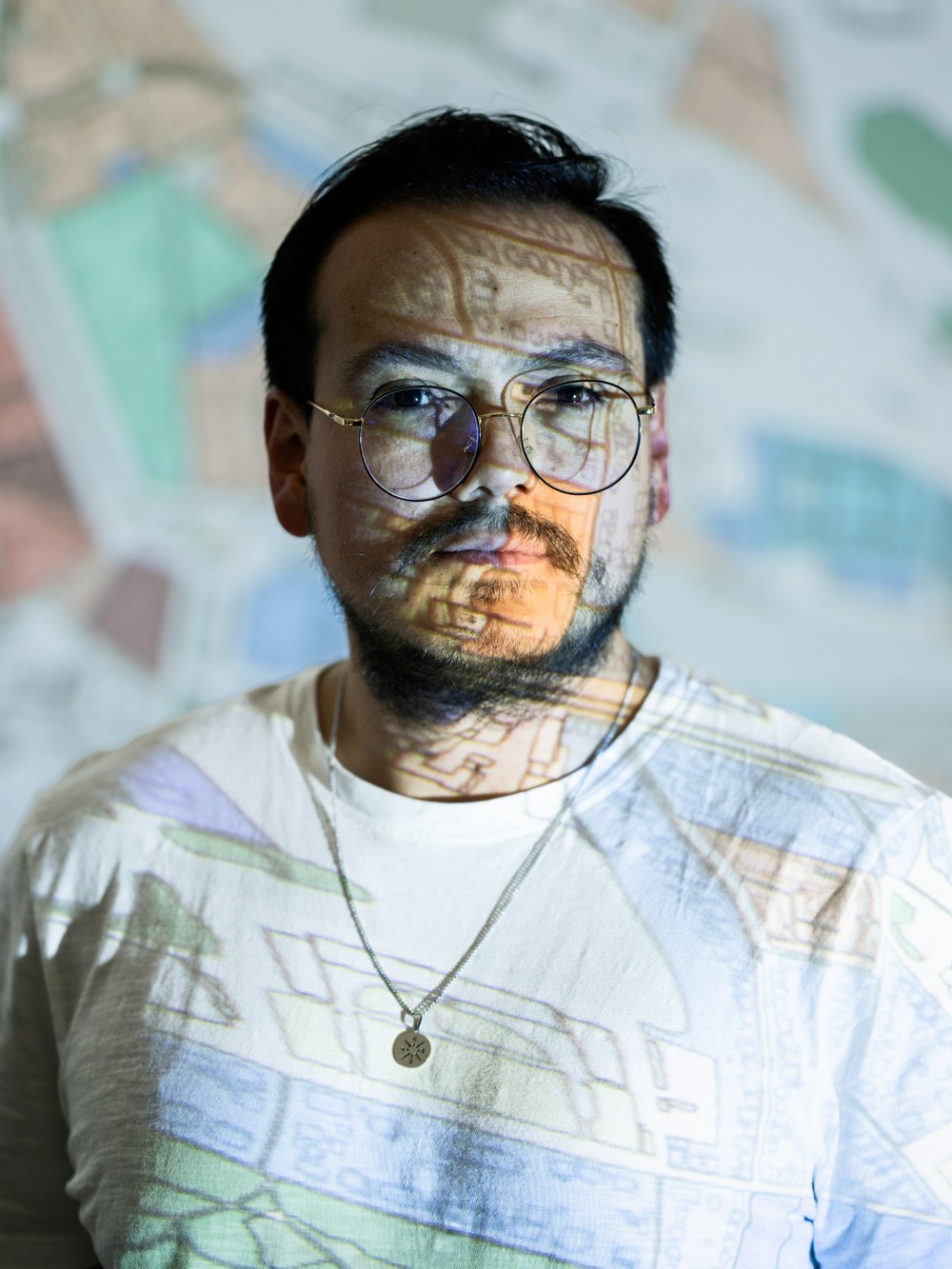
Age: 29
Hometown: Bogotá in Colombia, studying in Germany since 2018
Doctoral thesis at DLR: Energy analysis of buildings and neighbourhoods using available large-scale data
As a child wanted to be: an astronaut
According to colleagues, is particularly good at: getting on with things and keeping calm
First thing that comes to mind upon hearing the word 'heat': summer holidays
An article by Denise Nüssle from the DLRmagazine 176
